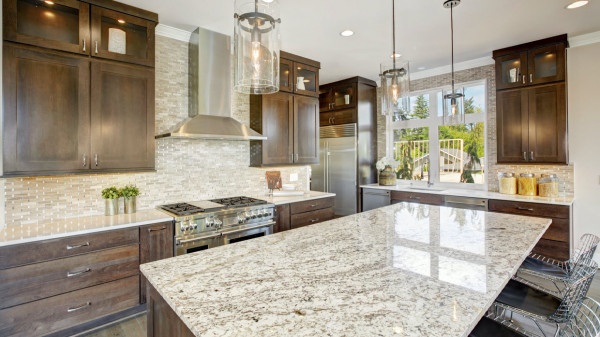Granite, Marble, Quartz, And More: Stone Countertop Options

In the world of kitchen and bathroom design, countertops play a vital role in defining the aesthetic and functionality of a space. Among the plethora of countertop materials available, natural stones like granite, marble, and engineered stones like quartz are perennial favorites. Each material has its unique characteristics, offering a distinct blend of beauty, durability, and practicality. In this article, we will explore these stone countertop options and more to help you make an informed choice for your home.
Granite: The Natural Beauty
Granite floors have been loved for a long time because they look great and last a long time. Formed deep within the earth's crust, granite is a natural stone with intricate veining and speckles that vary from slab to slab, making each countertop a unique work of art. Its impressive hardness and resistance to heat, stains, and scratches make it an ideal choice for kitchens.
Granite's innate elegance and natural strength make it a favorite among homeowners who appreciate a classic, rustic, or contemporary aesthetic. It's available in a wide range of colors, from the dramatic and dark to the subtle and light, ensuring that there's a granite option to suit every design preference.
Marble: Timeless Elegance
For those seeking a touch of opulence and timeless elegance, marble countertops are the epitome of sophistication. Marble is renowned for its smooth, white surface with intricate veins of gray, black, or other colors, creating a luxurious and inviting atmosphere. However, it's essential to note that marble is relatively softer than granite and quartz, making it more prone to scratching and staining. As a result, it may be better suited for bathroom vanity tops or less heavily used kitchen areas.
Marble countertops require extra care, including regular sealing and avoiding acidic or abrasive substances. Nevertheless, its unmatched aesthetic appeal continues to captivate homeowners and designers alike.
Quartz: Engineered Excellence
Quartz countertops, often referred to as engineered stone, are rapidly gaining popularity in modern kitchen and bathroom design. Composed of 90-95% crushed natural quartz crystals and resins, quartz countertops offer a perfect blend of durability and aesthetics. They are non-porous, resistant to stains, scratches, and heat, making them exceptionally low-maintenance.
One of the significant advantages of quartz countertops is the variety of colors and patterns available. Manufacturers can produce a wide array of designs that mimic the look of natural stones like marble and granite, providing homeowners with more choices to match their interior decor. Additionally, quartz countertops are environmentally friendly, as they utilize recycled materials in their production.
Soapstone: The Understated Beauty
Soapstone countertops may not be as well-known as granite or quartz, but they have their unique charm and appeal. This natural stone features a smooth, matte finish and ranges in color from light gray to charcoal. It is relatively soft, making it prone to scratching and denting, but its mineral composition allows scratches to be sanded out, restoring its smooth surface.
Soapstone countertops have excellent heat retention properties, making them an excellent choice for bakers. They require periodic oiling to maintain their lustrous appearance, which many homeowners find appealing as it results in a beautiful patina over time.
Slate: Rugged Elegance
Slate countertops offer a rugged, natural elegance with a distinctive textured surface. They come in various shades of gray, green, black, and purple, adding a unique character to any kitchen or bathroom. Slate is durable, heat-resistant, and non-porous, making it a practical choice for busy households.
One of the standout features of slate countertops is their texture, which can add depth and visual interest to your space. However, like soapstone, slate may require occasional oiling to enhance its natural beauty and protect it from stains.
